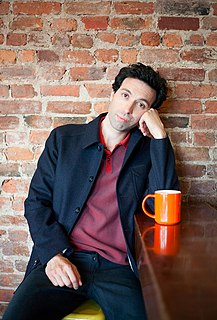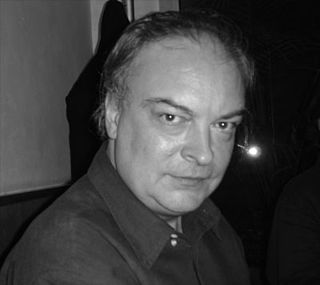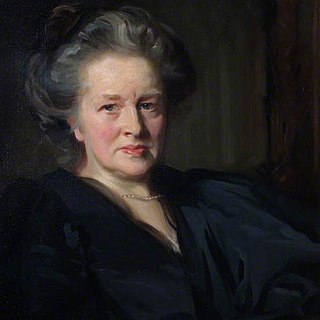A Quote by Irvin D. Yalom
Death anxiety is the mother of all religions, which, in one way or another, attempt to temper the anguish of our finitude.
Related Quotes
Does the open wound in another's breast soften the pain of the gaping wound in our own? Or does the blood which is welling from another man's side staunch that which is pouring from our own? Does the general anguish of our fellow creatures lessen our own private and particular anguish? No, no, each suffers on his own account, each struggles with his own grief, each sheds his own tears.
I do have commitment phobia, which I think is underlied by death anxiety. I feel that if you are in a relationship, there is a real genuine possibility of plateauing, and there is a possibility for a creative, emotional and spiritual death because of it. Only part of me feels this way, but it's enough to create an anxiety which makes me think twice before committing.
God knows we have our own demons to be cast out, our own uncleanness to be cleansed. Neurotic anxiety happens to be my own particular demon, a floating sense of doom that has ruined many of what could have been, should have been, the happiest days of my life, and more than a few times in my life I have been raised from such ruins, which is another way of saying that more than a few times in my life I have been raised from death - death of the spirit anyway, death of the heart - by the healing power that Jesus calls us both to heal with and to be healed by.
Life seems to be a process of replacing one anxiety with another and substituting one desire for another--which is not to say that we should never strive to overcome any of our anxieties or fulfil any of our desires, but rather to suggest that we should perhaps build into our strivings an awareness of the way our goals promise us a respite and a resolution that they cannot, by definition, deliver.
If we live in our oneness-heart, we will feel the essence of all religions, which is love of God. But if we live in the mind, we will only try to separate one religion from another and see how their ideologies differ. It is the heart that can have a true intuitive understanding of the height and breadth of all religions. It is the heart that sees and feels the inner harmony and oneness of all religions.
Question of "Where We Begin" turns to be not only a formal question but also a question central to the attempt to make sense of things about which it is very difficult to make any sense - illness, death, despair, suicides, cruelty, the various troubles love can provoke, our inability to really know one another when we our inner selves are walled off by our bodies.
The way we deny death says something about how we live our lives, doesn't it? At least in Sweden or Scandinavia, you don't have to search further back in time than maybe three generations to find another way to relate to death. People then had a different, closer relationship with death; at least it was like that in the countryside.





































